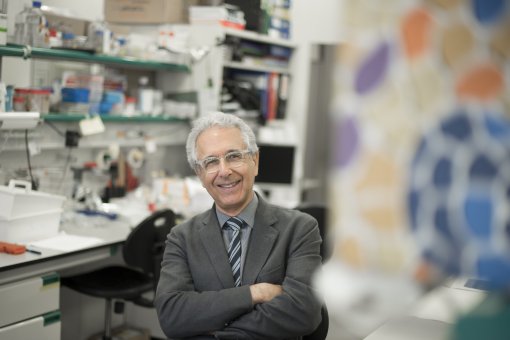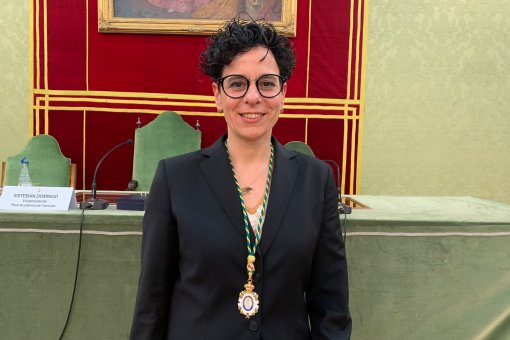Contact

The Head of the Oncology Programme has received the Debiopharm Life Sciences Award, given by the EPFL of Lausanne to young European scientists.
The first Debiopharm Life Sciences Award has been given to Eduard Batlle, ICREA Research Professor from the Institute for Research in Biomedicine (IRB Barcelona), for “his significant contributions to the understanding of colorectal cancer.” The prize, funded by the Swiss biopharmacuetical development company Debiopharm, is awarded by the EPFL (Ecole Polytechnique Fédérele of Lausanne) and Debiopharm to European researchers under the age of 40 who demonstrate innovative vision and originality in their research projects, the results of which have high potential for therapeutic and industrial applications.
Batlle will receive the prize during the 6th annual ISREC conference on cancer research, to take place in Lausanne from October 11 to 13. During the conference he will present the projects his group is currently working on to leading cancer researchers.
Since 2004, Batlle has headed the Institute for Research in Biomedicine’s (IRB Barcelona) Oncology Programme and has been a Principal Investigator in the Colorectal Cancer Laboratory. His research group studies the initiation of CRC and its progression from the early stages to the formation of aggressive tumors. They develop and examine cell and animal models that mimic this devastating disease, with the ultimate goal of obtaining information that will allow them to design new therapeutic and diagnostic tools.
Researchers in Batlle’s group are working on three different research lines. The first is the identification and characterization of normal intestinal stem cells and their malignant counterparts with the goal of identifying the relationship between cell renewal in the intestinal epithelium and the initiation and progression of colorectal cancer. The second is the identification of molecules that suppress the malignization of colorectal tumors, while the third, involves identifying the genes required by colorectal cancer cells to colonize the liver, with a focus on developing new therapeutic approaches to tackle the spread of this type of cancer.
Colorectal Cancer is one of the leading causes of death by cancer worldwide. Most colorectal tumors develop as benign lesions but a small proportion progress to more malignant stages when the appropriate alterations in oncogenes and tumour suppressor genes occur. The final and deadliest step in colorectal cancer progression is the metastatic dissemination of colorectal cancer cells to other organs, mainly the liver.
About IRB Barcelona
The Institute for Research in Biomedicine (IRB Barcelona) pursues a society free of disease. To this end, it conducts multidisciplinary research of excellence to cure cancer and other diseases linked to ageing. It establishes technology transfer agreements with the pharmaceutical industry and major hospitals to bring research results closer to society, and organises a range of science outreach activities to engage the public in an open dialogue. IRB Barcelona is an international centre that hosts 400 researchers and more than 30 nationalities. Recognised as a Severo Ochoa Centre of Excellence since 2011, IRB Barcelona is a CERCA centre and member of the Barcelona Institute of Science and Technology (BIST).




